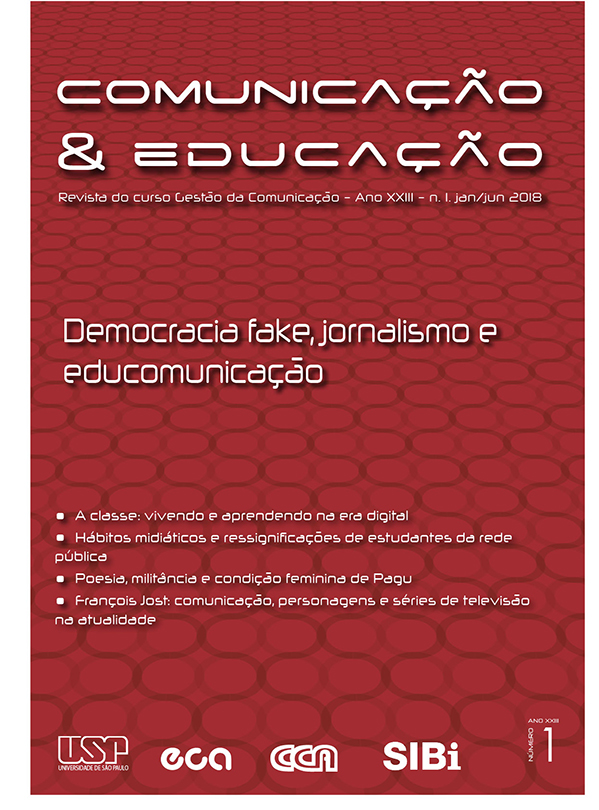Fake democracy, bad news
DOI:
https://doi.org/10.11606/issn.2316-9125.v23i1p107-126Keywords:
free media, democracy, communication, fake democracyAbstract
Media and democracy, like Cagney and Lacey or Starsky and Hutch, are inseparable. You just cannot have one without the other. The free exchange of ideas, information, and symbols that nourish citizens and replenish the system as a whole has long been seen as a central foundation of democratic societies. Indeed, a complex normative paraphernalia has emerged to describe the key responsibilities placed on media in the emergence and sustenance of democracy: as an independent watchdog and monitor of unchecked power, a tribune of the people, a defender of minorities, a fourth estate, and a public sphere. The free media is said to provide the oxygen, the lubrication or indeed the sinews of a fully functioning and robust democracy.Downloads
Downloads
Published
Issue
Section
License
I authorize the publication of the submitted article and soon the copyrights to the magazine, in the printed and electronic version, if it is approved after the evaluation of the reviewers.
I understand that readers may use this article without prior request, provided the source and authorship are mentioned. Readers are not authorized to use this article for reproduction, in whole or in part, for commercial purposes.

































